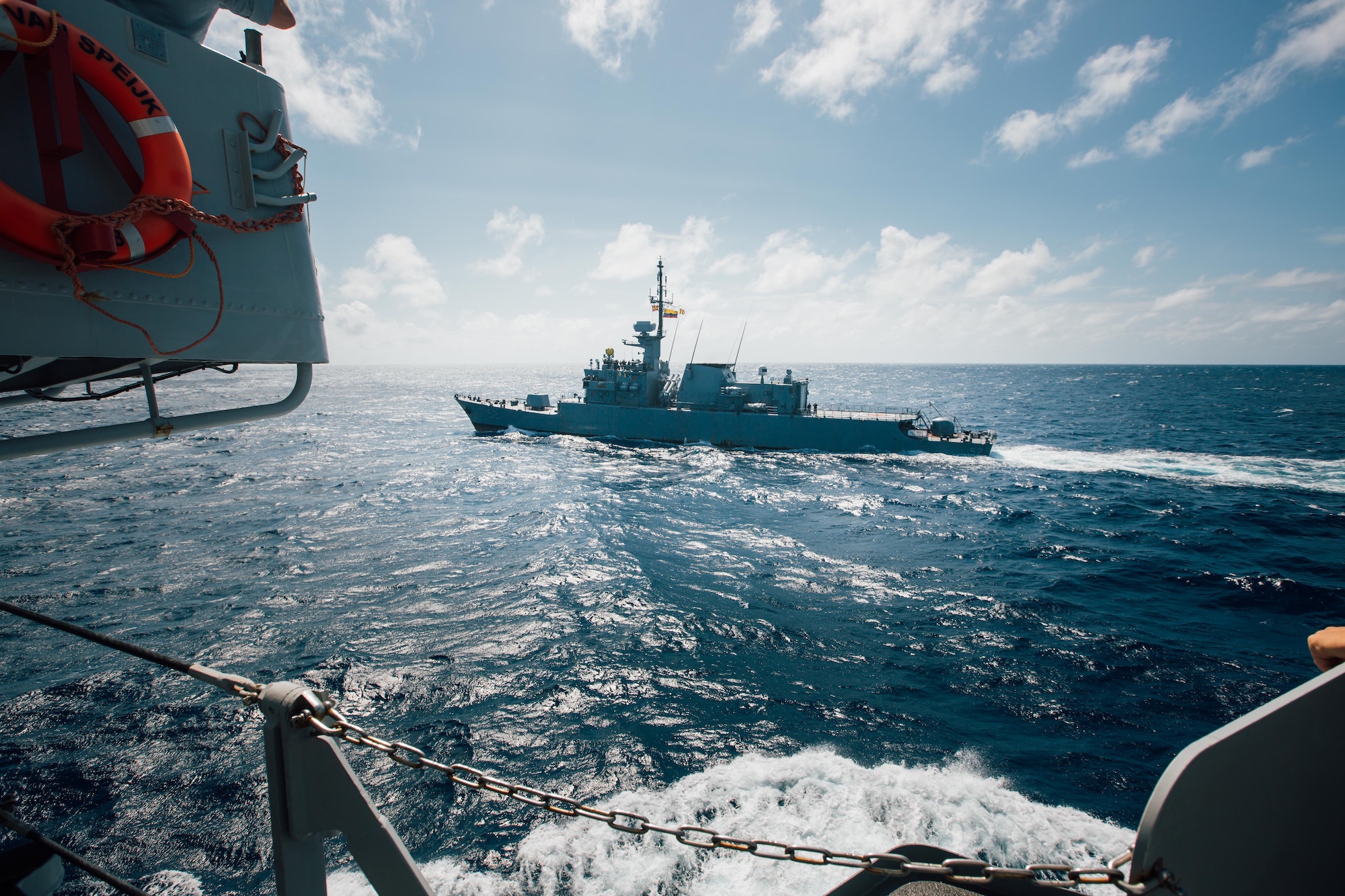I just listened to a podcast interview Brian Ellis did with retired US Navy Captain Michael Abrashoff for the National Command and Staff College Badge Cast 1 podcast. Abrashoff is the author of the best selling leadership books It’s Your Ship: Management Techniques from the Best Damn Ship in the Navy, It’s Our Ship: The No-Nonsense Guide to Leadership, and Get Your Ship Together: How Great Leaders Inspire Ownership From The Keel Up. In these books Abrashoff shares the story of how he and the crew of the USS Benfold worked to transform the Benfold from one of the worst rated ships in the Pacific Fleet to “the best damn ship in the Navy”. He did that by replacing command and control leadership with commitment and cohesion and the understanding that leadership matters and culture is everything.
Here are some of my takeaways from the podcast interview. The bolded parts are statements Abrashoff made in the interview and the bullet points are my thoughts.
“What do you think and how would you do this if you owned it?” was an important question I started asking the crew.
- Instead of telling your people what to do, ask more questions. When they answer the above question, then give them ownership of the problem and solution and have them get to work solving the problem. Because they are now personally invested in the outcome, people will do great work. None of us want to disappoint, or let a leader who believed in us and trusted us.
Excellence without arrogance. Lead with humility.
- This is an understanding that is not about you as the leader. It is about your people. The results you get are a product of their hard work. If you develop a level of arrogance because of your title and position then you become a boss not a leader. If you take the credit for the hard work and great ideas of your people they may stop working hard and stop sharing their ideas. Be humble enough to appreciate you do not have all the answers, but your people likely do.
The days of one person barking orders and expecting excellence are over.
- “Do it because I said so. Because I am the boss.” is not leading. That is the language of a boss, not a leader. Those who work in public safety, the military and other high threat environments understand that there are times when the leader needs to give orders and the team needs to take action. If that is an all the time thing however, people will start to tune out. Creating a culture of excellence is a collaborative process and requires a culture of inclusion and belonging and a commitment to a shared vision.
There is a difference between disciplining people for making a mistake and coaching people so they don’t make the mistake again.
- People are going to make mistakes. If you create a culture where people automatically get disciplined for making mistakes you will end up with a culture where people become action averse to avoid mistakes. People will get to the point where they will do the minimum to get the job done in order to avoid making mistakes and being punished. Instilling discipline as a leader is different than being a disciplinarian.
I wanted people to respect the chain of command, but not fear it. People cannot be afraid to tell the truth.
- This is a culture of psychological safety where people are not afraid to speak up and identify problems, issues, concerns or alternative solutions. If people are afraid to bring problems to their boss then you are headed for disaster. The culture needs to be one where people not only feel safe to speak up, they feel a sense of responsibility to the team and the mission to speak up.
You need to receive more than you transmit.
- As a leader you need to listen more than you talk. When I say listen, I mean truly listen. Actively listen. Listen like your life depends on it. Great leaders are great listeners. People want to be seen, heard, valued and understood. One of the best ways to do that as a leader is to listen.
There are many great leadership lessons from the stories of Michael Abrashoff, David Marquet and many others on the power of being intentional about creating a culture of leading, learning and excellence.
Remember that leadership is a choice and a journey and it starts with you. Choose well, keep learning and enjoy the journey.
Brian Willis
www.daretobegreatleadership.com
Register yourself, and your team for the Dare to Be Great: Strategies for Creating a Culture of Leading online workshop to get everyone on the same page regarding leadership and culture. If you are interested in hosting a live Dare to Be Great workshop reach out to me at info@daretobegreatleadership.ca.
